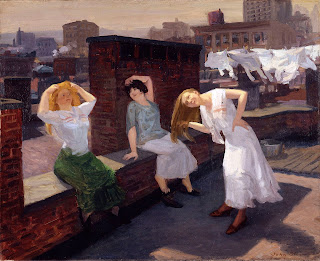Making predictions in English
 |
| El gordo by Marccostablanca. CC-BY-SA |
Look at the lottery ticket and answer these questions:
- Have you ever won the lottery?
- Would you like to win the lottery?
- How likely are you to win the lottery?
- If you won the lottery, what will you be doing next year?
These are some of the questions that you will answer in class today.
Making predictions in English
We can say how sure we feel about the future by using will, modal verbs,
the future continuous and the future perfect. There are also other phrases we
can use to express our certainty or uncertainty about future events.
Making a definite prediction with “will”
Making a definite prediction with “will”
We use “will”
in a definite prediction, when we know or believe that an event is certain.
- The cost of tuition fees will continue to rise
We can make
the prediction more or less certain by using
adverbs such as definitely, certainly, probably and modifiers such as almost or quite.
adverbs such as definitely, certainly, probably and modifiers such as almost or quite.
- People will definitely earn more money in the future.
- People definitely won’t earn more money in the future.
- The cost of oil will almost certainly continue to rise.
Both of these sentences show that the speaker is sure.
- You’ll probably enjoy this film.
- You probably won’t enjoy this film.
Making an uncertain prediction with a modal verb
We use may or might for uncertain predictions, when we are not sure
what will happen.
We can add well to add a greater degree of uncertainty.
- She might pass the exam or she might not pass. I don’t know.
Here the speaker thinks she’s right in her prediction but isn’t 100% sure.
- We might (well) run out of milk before the end of the weekend.
The speaker isn’t sure at all. You could also use could or may instead of
might.
Making
predictions with the future continuous and the future perfect
We use the future continuous“will be doing” to talk about
something that is predicted to start before a particular point of future time. It
is the result of a previous decision.
- This time next year we’ll be generating our own electricity with our new solar panels.
- James will be helping us to organise the party next month.
We use the future perfect “will have done” to say that
something will be ended, completed or achieved by a particular point in the
future.
- By the time you get home I will have cooked dinner.
- By the end of the week I will have finished the project.
Other expressions
There are some other ways to talk about how certain we are about something in the future.
1 I’m sure it will happen or will not happen
- Jane is bound to pass the exam. She has worked really hard.
- The library is bound not to open this afternoon.
- Jane is certain to pass the exam.
- It is certain that Jane will pass.
2 I think so but I’m not 100% sure
- Katia is likely to pass the exam.
- It is (highly) likely that Katia will pass the exam.
- There’s a good chance that Katia will pass the exam.
3 I don’t think so or I don't think it will happen
- Julian is unlikely to pass the exam.
- It is highly unlikely that Julian will pass the exam.
- There is a slim chance that Julian will pass.
- There’s no chance of Julian passing the exam.
- I doubt if Julian will pass.
- There is no way that Julian will pass.
- There is no doubt that Julian will fail.
Write
predictions about the following topics. You can use some of the words in the
box.
rise go
down get better get worse costly win work
English
exam travel abroad
1) Unemployment
in Spain
2) University
tuition fees
3) Wind
energy
4) The
lottery
5) This
time next year I………………………….
6) By
the end of next year……………………………
You can follow this British Council link if you feel you need further practice.
Let me know how you get on with making predictions.


Comments
Post a Comment